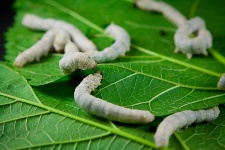 Colon, or colorectal, cancer is a dangerous disease. It is one of the leading causes of cancer-related deaths in the U.S. But there is also a silver-lining when it comes to this type of cancer: an early diagnosis could often lead to a complete cure.
Colon, or colorectal, cancer is a dangerous disease. It is one of the leading causes of cancer-related deaths in the U.S. But there is also a silver-lining when it comes to this type of cancer: an early diagnosis could often lead to a complete cure.
The best way to deal with your colon health is through cancer prevention. Barring that, finding an alternative remedy that will quickly and effectively stop the growth of cancerous cells is very important. Although there is no single cause of colon cancer, nearly all colon cancer tumors begin as noncancerous (benign) polyps, which slowly develop into cancer.
Catching the disease at this early stage, when tumors are still benign, is key. Now researchers in Thailand think they have found a special protein that is particularly good at killing off early-stage cancer growth in the colon. It’s a substance called “sericin.”
Sericin is a silk protein woven from silkworm cocoons. An unusual place to find a cancer cure, to be sure — but nonetheless it’s a potential treatment that has proven itself amazingly effective.
The research team investigated the effects of sericin on human colorectal cancer cells compared to normal colonic cells. Since the size of the sericin protein may be important for its anti-tumor activity, two ranges of molecular weight were tested.
The research team found that the small sericin particles had higher anti-proliferative effects than the large sericin particles when it came to stopping the spread of colon cancer cells. Not only did sericin stop these tumorous cells from spreading, but they also killed them off. This one-two punch suggests that this protein may have significant health benefits and could potentially be developed as a dietary supplement for colon cancer prevention.
Although this supplement is not yet widely available, it’s worth keeping in the back of your mind — especially if you find yourself in the following higher-risk group:
— Eat lots of processed or red meat
— Have cancer already
— Are of eastern European or African American descent
— Are older than 60
— Have a family history of colon cancer
— Have Crohn’s disease or ulcerative colitis
For another alternative remedy in the fight against colon cancer, read the article Try These Foods for Better Colon Health.
